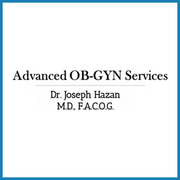
During your menstrual cycle, your body undergoes a phase called ovulation. This occurs when a mature egg is released from your ovary and travels through the fallopian tubes, where it awaits fertilization. Your uterine lining, meanwhile, has thickened in preparation for the newly fertilized egg. If the egg is not fertilized, it will shed with the thickened lining, causing the bleeding associated with your menstrual cycle. Recognizing when you’re ovulating is important for pregnancy preparation, as it is during this period when you are most fertile. Here’s what you should know.
What Are the Symptoms of Ovulation?
In the days leading up to ovulation, you may experience an increased amount of vaginal discharge. It is usually clear and flexible, with an appearance often likened to raw egg whites.
Some people also experience tender breasts, light bleeding, and even cramping similar to menstrual pain. This is known as mittelschmerz, and the pain may feel dull or sharp. Very rarely is it severe, but you should see your gynecologist if the pain is accompanied by a fever or nausea.
What Is Ovulation’s Effect on Fertility?

The five days prior to ovulation and the day ovulation itself occurs are known as your fertile window. Your fertility peaks during this time, when sperm is more likely to fertilize the egg waiting in the fallopian tube. This window comes to a close when the egg exits the fallopian tubes, after which it can’t be fertilized.
The key to remember is that both sperm and eggs live for short periods. The egg fertilization period is approximately one day, while sperm live for up to five days. The two must meet at exactly the right time, so for pregnancy preparation purposes, sexual intercourse must occur during that period — the five days prior to ovulation and ovulation day itself.
How Long Does Ovulation Last?
Ovulation occurs about two weeks before the start of your menstrual period. The standard cycle lasts for about a day, at which point the egg will either dissolve or die if it isn’t fertilized. For those focused on pregnancy preparation, it’s important to remember that the most fertile period is not one day but a full six-day window.
If you are concerned about your fertility or are interested in what you can do to improve your chances of pregnancy preparation, turn to Advanced OB-GYN Services in St. Peters and Bridgeton, MO. Dr. Joseph Hazan treats each patient with the individual attention they deserve, offering a range of gynecology services to help them achieve their goals and treat their concerns. Visit the website for more information, or call (636) 928-1800 to schedule a free consultation.
About the Business
(52 reviews)
Have a question? Ask the experts!
Send your question

